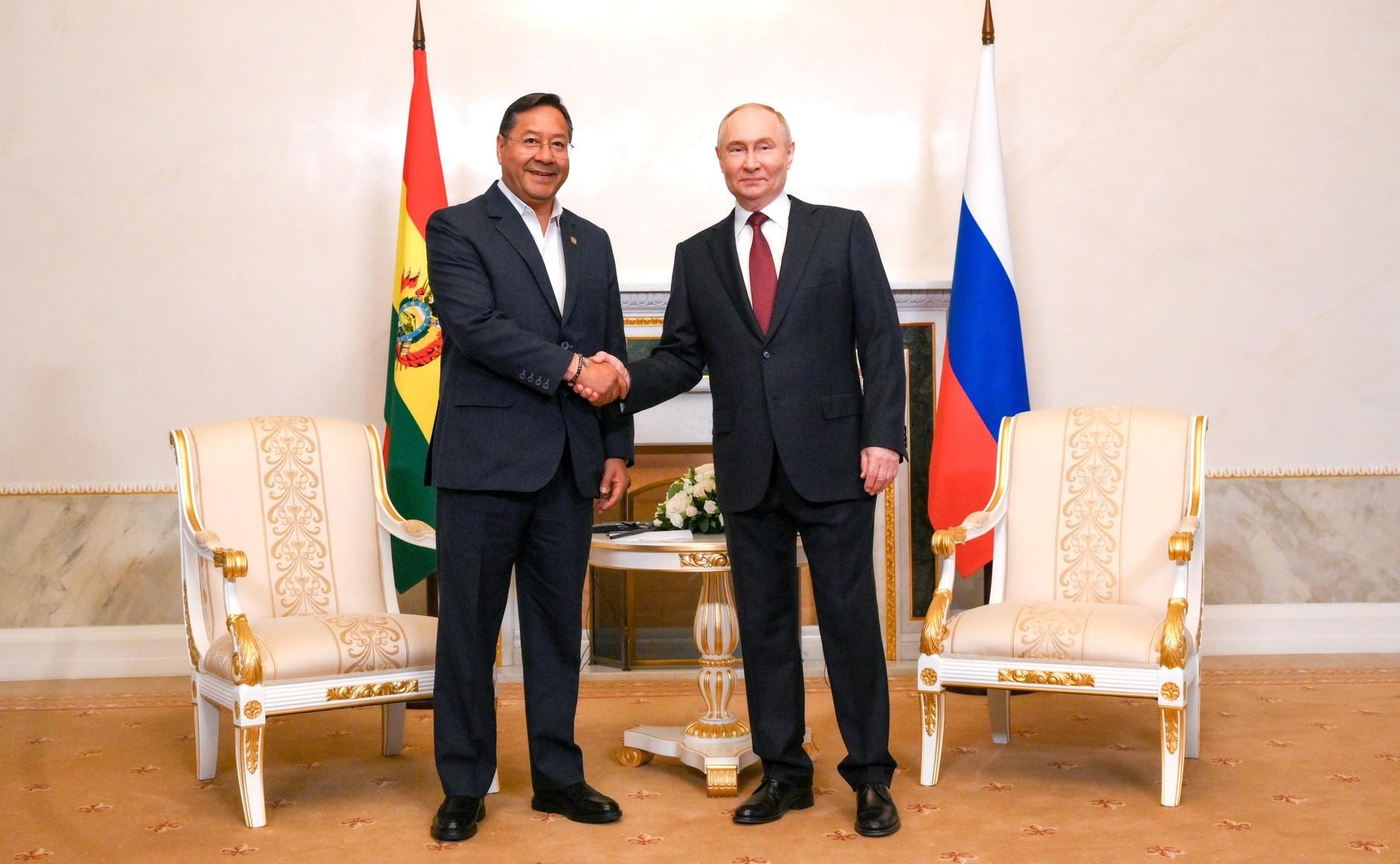RUSSIA’S PACIFIC OIL PIPELINE SEEN AS DOUBLE-EDGED SWORD
RUSSIA’S PACIFIC OIL PIPELINE SEEN AS DOUBLE-EDGED SWORD
Russia has long heralded its “strategic energy partnership” with China, yet Moscow has recently approved the Japan-bound East Siberia-Pacific oil pipeline. Now Russia is struggling to offer Beijing a sufficient consolation prize.
In December, Russian President Vladimir Putin indicated that China’ state oil company, CNPC, could be involved in the operations of some Yuganskneftegaz assets. Moscow has signed agreements with CNPC reflecting bilateral “strategic understandings” on the expansion of energy cooperation, deemed vital to long-term economic growth in both countries, he said.
Furthermore, the Russian government has indicated that recently auctioned Yuganskneftegaz assets would be eventually transferred from Rosneft to a new wholly state-owned entity, a 20% stake in which could be subsequently offered to China’s CNPC.
However, analysts voiced a measure of skepticism over would-be energy incentives offered to China. “I believe Yuganskneftegaz will remain fully state-owned,” said Yevgeny Yasin, a prominent Russian economist and former cabinet minister. China would not be allowed to acquire Yuganskneftegaz assets, he told journalists in Moscow (Ekho Moskvy, January 11).
Russia has also promised to deliver crude oil by rail to China — amounting to 10 million tons in 2005 and rising to 15 million tons in 2006. Russian Railways pledged it would spend more than $1 billion upgrading and expanding its sole link to China.
However, the planned oil exports to China could hardly serve as a substitute for the Angarsk-Daqing pipeline project. Russian officials have also failed to clarify which Russian company would replace Yukos as the country’s leading exporter to China or how exactly crude supplies could be increased.
Russia has been discussing a China-bound oil pipeline for nearly a decade. In June 2002, Russian officials pledged to invest $2 billion to fund the construction of the 2,247-km pipeline from the Russian city of Angarsk in the Irkutsk region to Daqing in northeastern China, which was scheduled to be commissioned by 2005. Through 2005-2009 the pipeline was due to supply 20 million tons of crude each year from oilfields in eastern Siberia.
China has made a six-point proposal on boosting ties with Russia, aimed at securing steady oil inflows from Russia. However, the Russian government passed on the Angarsk-Daqing project. On December 31, 2004, Russian Prime Minister Mikhail Fradkov approved the Taishet-Nakhodka oil pipeline blueprint. The annual capacity of the East Siberia-Pacific pipeline system would eventually reach 80 million tons.
The pipeline would go from Taishet to the Perevoznaya Bay terminal in the port of Nakhodka, crossing Russia’s Irkutsk, Chita, Amur, Buryat and Primor regions, according to Russia’s state-owned pipeline monopoly Transneft, which had long backed the Taishet-Nakhodka project.
In March 2004, Russia had rejected a previous version of the project, Angarsk-Nakhodka, in favor of Taishet-Nakhodka blueprint. The Taishet-Nakhodka oil pipeline would be approximately 4,130-km long– some 250 km longer than the Angarsk-Nakhodka project.
The Siberia-Pacific oil pipeline project could become the most expensive pipeline in history, as it would need a larger investment than the Alaska oil pipeline, which cost $9 billion. Early estimates of the cost of an oil pipeline from Eastern Siberia to Nakhodka could reach $11-12 billion.
Tokyo has been lobbying for an oil pipeline route to the Pacific. To back up these efforts, Japan reportedly promised up to $14 billion in funding. Japan has apparently offered to fund the construction of the pipeline, and to give Russia full control of the pipeline. Hence fewer strings seem to be attached and Russia would not be forced to sell its crude to Japan only.
Compared to this, China has only promised to provide funds for constructing the section of the pipeline that is connected directly to the Chinese city of Daqing. Furthermore, China would own the pipeline on its territory and was supposed to become an exclusive buyer of the oil from the pipeline (China Business News, December 12). Therefore, the Taishet-Nakhodka route is seen as a strategic asset for Russia, allowing it to funnel crude not only to Japan, but also to Korea, Indonesia, Australia, and the western coast of the United States.
However, Moscow’s latest decision also sparked some confusion in Asia. In Korea, it has been understood that the Siberian pipeline that would carry natural gas from Russia to Northeast Asia will not go into Korea, contrary to years of planning by the Korean government. Korea, which had made plans with China, will have to make changes as well (Joong Ang, January 3). Apparently, the Korean media has confused the East Siberia-Pacific oil pipeline with yet another project, the Kovykta gas pipeline.
It has been understood that Russia’s cooperation with China has been marred by mutual mistrust, notably from the Russian side. Russia’s decision on the Pacific oil pipeline was also seen as a serious setback for China’s energy policy (Delovaya nedelya, January 11).
In the past, Russian and Chinese officials raised the possibility that a branch of Russia’s Pacific oil pipeline could be diverted eventually to China. However, the New Year’s Eve announcement mentioned no China-bound branches of the future pipeline.
Nonetheless, China still hopes to achieve progress in energy cooperation with Russia. While answering questions about the proposed oil pipeline project linking the two countries, Chinese Foreign Ministry spokesman Kong Quan said that energy cooperation constituted an important part of the China-Russia strategic partnership, and that both country’s leaders and governments “attach great importance to the project, and have discussed different plans and proposals” (Xinhua, January 6).
It remains to be seen whether official pronouncements will become reality. The Yukos affair provides a stark example of how Russian domestic policy shifts can harm planned oil deliveries to China (Radio Free Europe/Radio Liberty, January 5).
Environmentalists were also less than happy with Moscow’s decision on the Pacific oil pipeline. On January 11, the Irkutsk-based Baikal Environmental Wave NGO released an open letter to President Putin, urging him to halt the project and carry out yet another environmental impact assessment (Regions.ru, January 11). In 2004 Russia’s official reasons for skipping the Angarsk-Daqing pipeline project concerned environmental damage.


